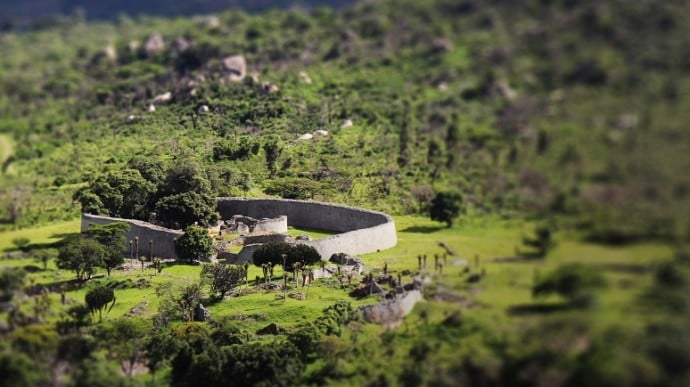Climate change in southern Africa will have far-reaching effects on the activities and well-being of humans. Predicted higher average temperatures, lower average rainfall, higher variability in weather, and more heatwaves and flooding will have dramatic consequences for water supply, food production, the generation and transmission of electricity, and human health. As a result research is being done on technological advances with a view to enabling humans to adapt to the changing climate.
But spare a thought for our wildlife.
Most of us are aware of the shrinking habitat of the polar bear. However, rising temperatures also affect less charismatic animals. Small mammals are faced with the challenge of regulating their body temperature. If they cannot succeed in doing so they suffer thermal stress and behavioural changes. In one case, increased temperatures lead to a rise in sea levels, which affected the availability of food and eventually resulted in the extinction of a small mammal species. Furthermore, extended heatwaves and droughts lead to the catastrophic die-off of desert birds because of insufficient access to water.
Research on the ability of small animals to adapt to changing environmental conditions will be fostered by means of the new Small Animal Physiological Research Facility at the University of Pretoria (UP). This state-of-the-art facility consists of ten environmentally controlled rooms in which the temperature, humidity and light cycle can be manipulated. In addition, it houses all the additional infrastructure required for modern, humane research on small animals.
The temperature, humidity and lighting in the rooms are fully programmable and controlled by means of custom-written software. In five of the rooms any temperature between zero and 50 degrees Celsius can be maintained and these rooms will be used primarily for projects on the thermal acclimation in birds. The remaining five rooms are designed for chronobiological work on mole rats and other small mammals led by NRF A-rated researcher Prof Nigel Bennett.
According to Prof Andrew McKechnie, acting head of the Department of Zoology and Entomology at UP, the first projects in the Small Animal Physiological Research Facility are due to start soon. His research on the effects of climate change on water loss rates in desert birds is internationally recognised and will benefit greatly from the new facility.
'I am really excited by the prospect of being able to untangle the effects of local genetic adaptation and acclimatisation – the intrinsic flexibility of individuals – on the ability of birds to tolerate high temperatures and dry conditions.'
Researchers from UP and other institutions who are interested in collaborating with Prof Bennett or Prof McKechnie and utilise the Small Animal Physiological Research Facility are encouraged to make contact.
Prof Nigel Bennet & Prof Andrew McKechnie
November 11, 2016


 Story
Story
This edition is curated around the concept of One Health, in which the University of Pretoria plays a leading role globally, and is based on our research expertise in the various disciplines across healthcare for people, the environment and animals.
 Story
Story
Highly sophisticated water management techniques of ancient civilisations demonstrate the ingenuity of inhabitants who lived with limited water. It appears we need to look to the past to ensure a stable water supply in the future.
 Story
Story
A new study by researchers at the University of Pretoria (UP) and the University of Adelaide in Australia has revealed the real function of the giraffe’s long legs ¬– to reduce blood pressure.
Copyright © University of Pretoria 2025. All rights reserved.
Get Social With Us
Download the UP Mobile App